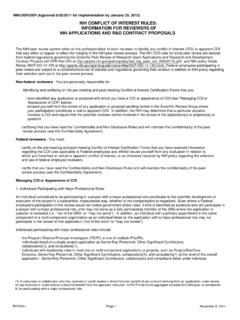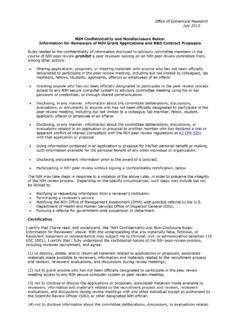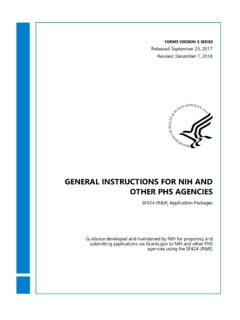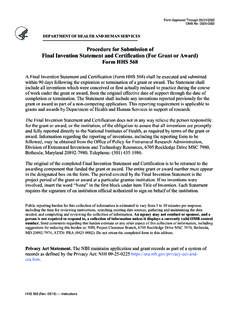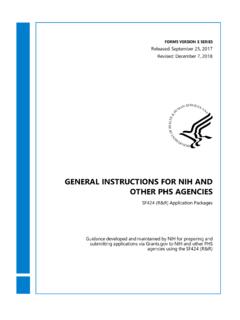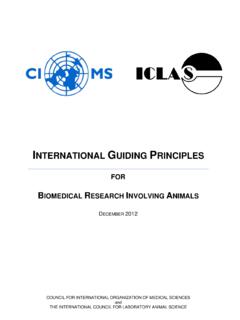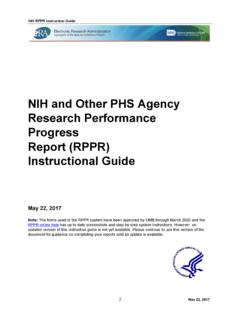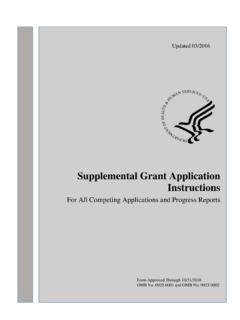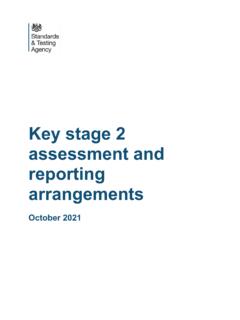Transcription of What is ESI? YES - National Institutes of Health
1 Will I lose ESI status if . early stage Investigator (ESI) Status What is ESI? It has been more than 10 years since my terminal research YES. degree or end of post-graduate clinical training and I have NIH defines an early stage Investigator (ESI) as a not experienced situations that qualify for an ESI extension Program Director / Principal Investigator (PD/PI) who request. (See these FAQs about ESI Extensions.). has completed their terminal research degree or end of post-graduate clinical training, whichever date is later, within the past 10 years and who has not previously competed successfully as PD/PI for a substantial NIH. independent research award. I am the PD/PI (or multi-PD/PI) on an NIH award. Yes, if you successfully competed as a PD/PI for a What is the benefit of having an ESI status? substantial independent research award. MAYBE. ESI applications with meritorious scores will be No, if you are the PD/PI of an award on our list of smaller prioritized for funding by the institute or center receiving grants & awards that maintain ESI status.
2 The application. How can I check if I have an ESI status? I am the PD/PI (or multi-PD/PI) on a multi-project award. Yes, if you successfully competed as a PD/PI for the overall Check the Education section of your eRA Commons profile. multi-project application. ESI status is determined automatically by functionality No, if you led a component but were not the PD/PI of built into eRA Commons. The status is based on the the overall application. investigator's record of receiving NIH grants and the completion date of his/her terminal research degree or the completion of post-graduate clinical training entered into the eRA Commons personal profile. I'm a Co-Investigator on the grant. (NIH only recognizes Where can I find out more? senior/key with the role PD/PI as principal investigators .). You can find more information here: NO. I'm the PD/PI on a subaward or subcontract. Related NEXUS posts: FAQS: I became the PD/PI due to a change of investigator action. (If you did not compete successfully as the PD/PI for a substantial NIH independent research award you won't lose status.)
3 Created 4/9/2020.
